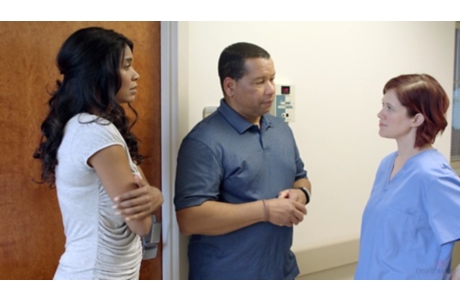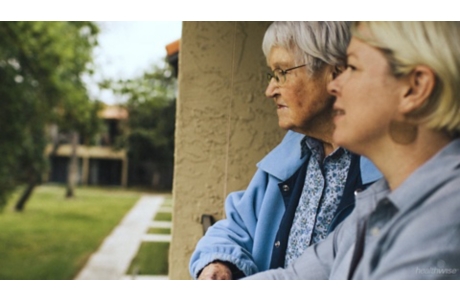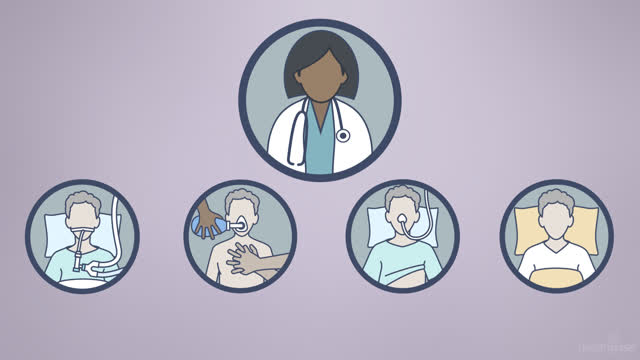Advance Directive: What to Include
Topic Overview
A living will and a medical power of attorney are types of advance directives. These forms describe the kinds of medical care you want to receive if you’re badly hurt or have a serious illness that keeps you from saying what you want. A medical power of attorney lets you name a person to be your health care agent. He or she can make decisions for you if you can’t speak for yourself.
Many states have a unique form (for example, they may ask you to address specific issues). Or you might use a universal form that has been approved by many states. This kind of form can sometimes be completed and stored online. Your electronic copy will then be available wherever you have a connection to the Internet. Doctors typically respect your wishes even if you have a form from a different state.
It may be hard to know what to include in your advance directive. Take your time, and use the questions below to help you get started.
Who do you want to make your health care decisions for you?
- Do you have a person in mind, such as your partner, a close friend, or your doctor? (In some states, your treating doctor can’t be your health care agent.)
- Can you talk to this person about the kinds of treatments you do or don’t want to have?
- Does this put too much pressure on the person to make decisions for you? Do you think that he or she will be able to do what you ask?
- Do you think that your friends, your family, and others will support your decisions?
Do you know enough about the kinds of treatments that can help keep you alive?
- Cardiopulmonary resuscitation (CPR) is used if your heart has stopped.
- A breathing machine that pumps air into your lungs through a tube is used if you can’t breathe on your own.
- Dialysis is used if your kidneys stop working.
- A feeding tube or an intravenous (IV) line is used to provide food and fluids if you can’t eat or drink.
- Antibiotics are medicines used to treat serious infections.
How do you feel about the use of life support if you:
- Have a serious illness that can’t be cured?
- Are in a coma and there is little chance that you’ll come out of it?
- Have a long-term illness that gets worse over time and doesn’t get better?
What concerns you the most?
- Are you worried that you’ll have pain or be kept alive on machines?
- Are you worried that you’ll lose your ability to function and live on your own or that you’ll be a burden to your family?
- Are there things that scare you? Include your fears or concerns in your advance directive.
What does quality of life mean to you?
- Do you want to be able to function and live on your own?
- Are you okay with living in a hospital or nursing home?
- Are you okay with being kept alive by machines?
Do you have any other thoughts about what quality of life means to you and how much control you want to have over it?
Here are some other questions to think about:
- Where do you want to spend the last days of your life? Would it be in the hospital or at home?
- Do you have any medical problems right now that affect your way of life?
- Do you have an implanted cardiac device that may need to be deactivated at some point? This includes some types of pacemakers and ICDs (implantable cardioverter-defibrillators).
- Do you want to donate your organs when you die?
- Can you talk to your doctor about end-of-life issues?
- Do your religious or spiritual beliefs keep you from having a living will? If they do, ask your clergy or spiritual advisor to help you know what to do if you can’t make medical decisions for yourself.
- Will you be able to practice religious rituals before you die? In some religions, rituals are done before or after a person dies. If you want certain rituals to be done and know who you want to do them, write them in your advance directive. For safety reasons, some hospitals may not let you do certain rituals.
- Do you want to include your beliefs and thoughts about illness, dying, and death?
You may find it hard to answer some of these questions. Here’s a way to help make things more clear.
Try to picture yourself in each of the situations listed below. Then think about what you would like to happen if you couldn’t say what you wanted. As you read through each example, write down any thoughts that come to you.
- What if you had a disease that couldn’t be cured? Would you want to be given antibiotics to get rid of an infection, such as pneumonia, that might lead to your death if it’s not treated?
- What if you had a disease that gets worse over time and affects your movement or memory, such as Parkinson’s disease or Alzheimer’s disease? Would you want to be given food and fluids through a tube? If so, is there a time when you would want to stop this treatment?
- What if you were in pain? Would you want to be given strong doses of medicine to ease it, even if they make you groggy and not able to think clearly?
- What if you were in a coma and there was little chance that you would come out of it? Would you want to be kept alive by a machine that pumps air into your lungs through a tube if you can’t breathe on your own?
Try this exercise again with a few more “what if” situations. This time you might think about what your doctor says about your chances for recovery and how that might affect what you decide to do. You may see some patterns develop that can help you decide what to include in your advance directive.
These decisions are tough to make, but you don’t have to make them alone. Look to your family, your doctor, and your friends for help and support.
Current as of: April 1, 2019
Author: Healthwise Staff
Medical Review:Anne C. Poinier MD – Internal Medicine & Adam Husney MD – Family Medicine & Jean S. Kutner MD, MSPH – Geriatric Medicine, Hospice and Palliative Medicine & Robin L. Fainsinger MBChB, LMCC, CCFP – Palliative Medicine
This information does not replace the advice of a doctor. Healthwise, Incorporated, disclaims any warranty or liability for your use of this information. Your use of this information means that you agree to the Terms of Use. Learn how we develop our content.






